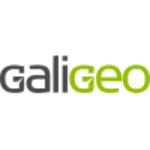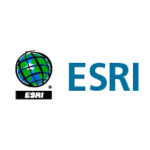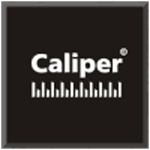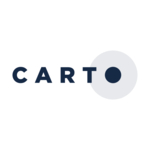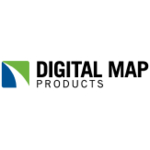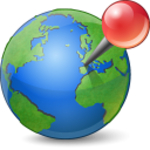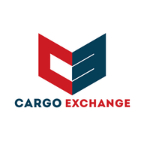TechnologyCounter provides genuine, unbiased real user reviews to help buyers make informed decisions. We may earn a referral fee when you purchase through our links, at no extra cost to you.
List of 15 Best Location Intelligence Software
Showing 1 - 15 of 31 productsAlteryx is a data analytics platform designed to help businesses and organizations harness the full potential of their data. With its intuitive interface capabilities, Alteryx allows users to easily blend, enrich, and analyze data from multiple sourc...Read Alteryx Reviews
Maptive is a mapping software that simplifies complex data and transforms it into insightful visualizations. With its user-friendly interface tools, Maptive allows businesses and organizations to effectively analyze their data and make informed decis...Read Maptive Reviews
Galigeo is a pioneering solution for all your location intelligence needs. With its advanced technology and user-friendly interface, Galigeo empowers businesses to make smarter, data-driven decisions by analyzing geospatial information. Say goodbye t...Read Galigeo Reviews
ArcGIS is a and versatile mapping software that allows users to create and analyze spatial data with precision and efficiency. With its intuitive interface tools, ArcGIS has become a go-to solution for professionals in various industries such as urba...Read ArcGIS Reviews
MapInfo Pro is a location intelligence software designed to help businesses and organizations make data-driven decisions. With its advanced mapping and analysis tools, MapInfo Pro allows users to visualize, analyze, and interpret location-based data,...Read MapInfo Pro Reviews
Maptitude is a versatile and user-friendly mapping software that helps individuals and businesses visualize data in an interactive way. With its powerful mapping and data analysis tools, Maptitude provides an efficient and effective solution for crea...Read Maptitude Reviews
CARTO is a mapping and location intelligence platform that helps businesses and organizations analyze and understand their data through interactive visualizations analytics. With CARTO, you can unlock strategic insights and make data-driven decisions...Read CARTO Reviews
MapAnything is an innovative route optimisation software designed to assist businesses in assessing their current state and determining their future strategies. It offers features such as Driver Management and Live Driver Tracking, and is accessible...Read MapAnything Reviews
eSpatial, the ultimate mapping software for all your business needs. Our intuitive platform provides a wide range of tools for visualizing and analyzing your data, making it easier for you to make informed decisions and drive business growth. With eS...Read eSpatial Reviews
LandVision is an innovative mapping and property analysis tool designed to empower real estate professionals with the tools they need to make informed decisions. With seamless integration of data layers, advanced search capabilities, and visual analy...Read LandVision Reviews
Discover the power of location intelligence with Map Business Online. This robust business mapping software allows you to visualize and analyze your data in a geospatial context, enabling you to make strategic decisions and optimize your operations...Read Map Business Online Reviews
Clara is a dynamic software that streamlines your everyday tasks with its user-friendly interface technology. With Clara, organizing and managing your workload becomes effortless, allowing you to focus on what truly matters. Say goodbye to stress and...Read Clara Reviews
GeoSpin is a software that revolutionizes the way businesses manage geographic data. Designed with efficiency and accuracy in mind, GeoSpin streamlines data collection and analysis for improved decision-making. Say goodbye to tedious manual processes...Read GeoSpin Reviews
SmartMarket is a solution for businesses looking to streamline their sales and marketing efforts. With its advanced features interface, SmartMarket empowers businesses to effortlessly manage customer relationships, track sales, and analyze data to ma...Read SmartMarket Reviews
Track n Trace is a software solution that brings efficiency and transparency to your supply chain management. Designed to streamline tracking and tracing of goods, this software ensures real-time visibility of your products, eliminating potential del...Read Track n Trace Reviews
- What Is Location Intelligence Software?
- Top Reasons Why Businesses Need Location Intelligence Software?
- What Are the Top Key Features of Location Intelligence Software?
- What Are the Top Benefits of Location Intelligence Software?
- What Are the Steps to Choose the Right Location Intelligence Software?
- What Are the Types of Location Intelligence Software for Different Industries?
- What Are the Technology Trends for Best Location Intelligence Software?
- What Are the Deployment Options for Location Intelligence Software?
What Is Location Intelligence Software?
Location intelligence software is a software application that facilitates data-driven decision-making for businesses and organizations on their operations. Geographic Information Systems (GIS) are utilized for the purpose of gathering, examining, and presenting geographical data, encompassing the positioning of clientele, personnel, and resources.
The collected data is subsequently utilized to unveil patterns and trends, so enhancing the process of decision-making. Location intelligence software has the capability to assist organizations in the development of customer segmentation models, the identification of hotspots, and the estimation of new markets.
An instance of employing location intelligence software could be observed in the context of a commercial entity, wherein it is utilized to identify optimal locations for the establishment of new stores or restaurants.
The software will offer comprehensive location analysis, encompassing factors such as the demographic composition of the area, the magnitude of the market, and the presence of local competitors. Additionally, this software has the capability to generate heat maps that visually represent the areas where customers are more inclined to engage in shopping activities.
Furthermore, it can provide insights regarding the most sought-after products or services within these areas. In general, the utilization of the best location intelligence software facilitates enterprises in making more informed decisions based on data analysis.
Top Reasons Why Businesses Need Location Intelligence Software?
1. Accurate store and sales territory mapping – Location intelligence software facilitates organizations in precisely delineating store and sales areas through the creation of current maps and the utilization of analytical techniques to detect potential overlaps in territories or the existence of competitors.
2. Improved customer service – The best location intelligence software is a tool that assists organizations in discerning consumer profiles and preferences by analyzing geographic location data. This capability empowers enterprises to provide more prompt and tailored customer service.
3. Market segmentation – Location intelligence software enables firms to effectively segment markets based on demographic and geographic data with a high level of precision.
4. Visualization of complex data – Top location intelligence software is a valuable tool for organizations as it enables them to effectively display intricate data sets. This includes the ability to analyze and present sales numbers specific to different regions, as well as track and understand the customer journey pertaining to certain items.
5. Improved analysis of market trends – Location intelligence software enables organizations to efficiently analyze vast amounts of location-specific data, facilitating the identification of patterns and the improvement of sales forecasting accuracy.
6. Improved analysis of customer behavior – Location intelligence software facilitates the monitoring of client behavior and patterns, so empowering organizations to enhance customer service and bolster sales.
7. Better decisions – Location intelligence software offers firms an enhanced foundation for decision-making, enabling them to discern and address market possibilities while optimizing their operations with more efficiency.
8. Improved budgeting and planning – The utilization of location intelligence software enables firms to enhance the precision of budgeting and resource allocation planning.
9. Improved marketing campaigns – The utilization of location intelligence software empowers firms to discern regions characterized by limited customer involvement, hence enabling them to strategically focus their marketing activities on these specific places.
10. Enhanced customer loyalty – The best location intelligence software enables organizations to enhance client loyalty by providing more tailored offers, leveraging both geographic location and purchasing patterns.
11. Comparative analysis of competitors – Location intelligence software facilitates the comparison of store locations and competitors, thereby enhancing firms' comprehension of the competitive environment.
12. Risk analysis – Top location intelligence software has the capacity to do an analysis of the potential risks associated with disasters and extreme weather conditions. This enables businesses to strategically prepare for and promptly address such occurrences in a manner that is both efficient and effective.
13. Improved customer targeting – Location intelligence software facilitates the identification and targeting of client segments that yield the most profitability for enterprises, utilizing data pertaining to both geographic and demographic factors.
14. Improved customer segmentation – Location intelligence software enables businesses to discern client needs and preferences by leveraging geographic location data, hence facilitating enhanced segmentation and targeted customer engagement.
15. Accurate reporting – The best location intelligence software has the capability to swiftly provide precise reports, thereby facilitating firms in comprehending the influence of their operations on the performance of specific stores.
What Are the Top Key Features of Location Intelligence Software?
1. Spatial Querying: Location intelligence software offers the capability to get data by utilizing geographic criteria, including but not limited to distance, area, buffer, or closeness.
2. Geographic Heat Maps: Heat maps are visual representations that illustrate the distribution and intensity of a particular variable within a given geographical area.
This functionality enables users to expeditiously visualize regions where a specific event or circumstance is more prone to transpire.
3. Graphical Outputs: The best location intelligence softwareoffers a wide range of robust graphical outputs, encompassing intricate diagrams, grids, spherical and other three-dimensional representations, as well as diverse visualizations.
4. GIS Integration: The integration of location intelligence software with Geographic Information Systems (GIS) enables users to visualize their data within a geographical framework.
5. Time-Based Analysis: Top location intelligence software provides users with the capability to retrieve data by utilizing time-referenced criteria, hence enabling a more comprehensive understanding of the dynamic evolution of geographic patterns.
6. Location Intelligence Reports: Location intelligence reports enable users to quickly view and compare data trends over particular geographic areas or to identify patterns.
7. Real-Time Update and Alerts: The incorporation of user-defined options inside location intelligence software facilitates the automated generation of real-time updates and warnings in response to data modifications.
8. Data Migration: Location intelligence software facilitates the integration of data from various sources and systems into a centralized data repository.
9. Cloud-Based Hosting: The majority of location intelligence systems are cloud-based, facilitating expedient data accessibility and enabling collaborative data sharing.
10. Predictive Analysis: Top location intelligence software is frequently employed to assess and forecast occurrences or circumstances through an examination of historical data.
What Are the Top Benefits of Location Intelligence Software?
1. Improved Data Analysis: The utilization of location intelligence software facilitates the expeditious analysis of intricate geographical data, hence enhancing the efficiency of decision-making processes.
2. Optimized Operations: By utilizing real-time location data and gaining valuable insights, firms have the ability to enhance operational efficiency and formulate effective plans aimed at providing superior customer service.
3. Enhanced Market Understanding: The best location intelligence software plays a crucial role in the identification of target markets and the generation of valuable data to inform and guide the development of efficient marketing strategies.
4. Effective Collaboration: The utilization of location intelligence software facilitates enhanced collaboration across teams through the expedited process of data-driven decision-making.
5. Improved Risk Management: The use of location intelligence software empowers users to more effectively mitigate hazards and anticipate prospective issues prior to their manifestation as actual incidents.
6. Accurate Predictive Models: The integration of data from diverse sources enables location intelligence software to effectively forecast prospective hazards with a high degree of accuracy.
7. Deriving Actionable Insights: Location intelligence software plays a crucial role in revealing actionable insights that can be leveraged to enhance decision-making processes.
8. Maximizing Asset Utilization: By leveraging precise location data, enterprises have the ability to monitor and enhance the efficiency of their resources in the context of their routine activities.
9. Faster Decision Making: Organizations can expedite decision-making processes while upholding quality standards by leveraging precise location intelligence data.
10. Cost Savings: Top location intelligence software assists firms in identifying possible areas for reducing operating costs.
What Are the Steps to Choose the Right Location Intelligence Software?
1. Conduct an investigation of the various forms of location intelligence software that are currently accessible in the market. This analysis will examine the many features, capabilities, and output formats of different solutions.
2. Take into account the particular requirements for your project or company. Location intelligence software has the capability to provide a diverse array of insights that can be utilized to inform decision-making processes, including geospatial analytics, demographic mapping, and market analysis.
3. When contemplating the selection of data sources, input formats, extraction methods, and output formats, it is important to carefully consider the specific requirements and preferences.
In order to effectively utilize location intelligence apps, it is imperative that they possess the capability to seamlessly interface with pre-existing data sources and manipulate the data in a manner that aligns with the specific requirements of the user.
4. Solicit comments from your team members. In order to ascertain the optimal solution, it is important to engage in a comprehensive analysis of expectations, characteristics, and budgetary considerations.
5. Numerous manufacturers provide complimentary trial periods, enabling users to gain firsthand experience with the functionalities and user interface of their software, thus facilitating informed decision-making regarding its suitability for their specific project.
6. In order to make an informed decision, it is necessary to undertake a comparative analysis of the features and prices of different solutions and subsequently choose the most suitable option. It is imperative to take into account the financial implications, data integrity, and level of customer support associated with any potential solution.
What Are the Types of Location Intelligence Software for Different Industries?
Location intelligence software can be categorized into three distinct groups: mapping software, spatial analysis software, and geographic information system (GIS) software. Mapping software offers fundamental functionalities for mapping, encompassing the presentation of geographical attributes and the superimposition of data into a map.
Some instances of mapping software encompass Google Maps and Mapbox. Spatial analysis software is primarily designed to enhance analytic capabilities by facilitating tasks such as identifying optimal routes, examining patterns and linkages within spatial data, and making predictions about future events.
ArcGIS and QGIS are two prominent examples of software falling inside this category. GIS software provides a diverse array of functionalities, encompassing the capacity to effectively handle extensive geospatial datasets, construct intricate spatial models, and conduct sophisticated geographic analyses.
Two examples of geospatial software are GeoServer and GeoMatica. Different sectors require specific applications that are tailored to their unique needs within the realm of software. Mapping software is utilized throughout several industries, such as healthcare, retail, and transportation, for the purpose of examining client demographics, delivering navigation services, and enhancing route planning efficiency.
For instance, Uber employs mapping software in order to deliver location-based services. Spatial analysis software is frequently employed by various industries, including agricultural and urban planning, to investigate and depict data, construct geographical models, and forecast potential results.
Geographic Information System (GIS) software is widely employed across several sectors, such as utilities, engineering, and defense, for the purpose of effectively managing geographical data, generating digital elevation models, and conducting sophisticated predictive analysis.
What Are the Technology Trends for Best Location Intelligence Software?
The utilization of location intelligence software has experienced substantial growth in recent years, hence necessitating careful consideration of technology advancements within this domain.
The primary trends observed in the domain of location intelligence software encompass
1. Improved data visualization: The utilization of data visualization plays a crucial role in comprehending geographical data, enabling users to enhance their understanding and effectively handle the data at their disposal.
In order for location intelligence software to be effectively utilized, it is imperative that the program possesses the capability to present data in a clear and comprehensible manner.
2. Increased automation capabilities: The integration of automation into the best location intelligence software has the potential to enhance its efficiency and facilitate more advanced data processing. Automation can also liberate human resources and enable organizations to enhance their concentration on data analysis endeavors.
3. Integration with other applications: With the ongoing advancement of technology, it becomes imperative to combine location intelligence software with various applications to maximize its utilization.
In order to optimize the efficacy of the software, it is imperative to incorporate contemporary market trends and the prevailing systems employed by organizations into the integration process.
4. Advanced analytics and predictive modeling: The capability of location intelligence software to rapidly analyze data and deliver valuable insights is crucial. This can assist enterprises in enhancing their decision-making processes pertaining to location-based initiatives.
Predictive modeling holds significant importance in enabling firms to foresee and effectively respond to environmental fluctuations, hence enabling them to adopt proactive strategies for risk mitigation.
5. Improved mobile experience: The accessibility of top location intelligence software across many devices, including smartphones, tablets, and laptops, is of paramount importance. This can facilitate firms in ensuring convenient and efficient access to data for both their consumers and employees.
What Are the Deployment Options for Location Intelligence Software?
The available deployment options for location intelligence software are contingent upon the particular software being used.
1. Generally, location intelligence software can be installed on-premises, which involves running the software on local computers and servers.
2. Alternatively, it can be deployed through cloud solutions, such as Software as a Service (SaaS), Platform as a Service (PaaS), and Infrastructure as a Service (IaaS).
3. On-premises deployments offer firms the advantage of flexibility, customisation, and control over the underlying hardware and software.
4. In contrast, cloud-based deployments are more suitable for organizations seeking rapid scalability and expedited installation periods.


